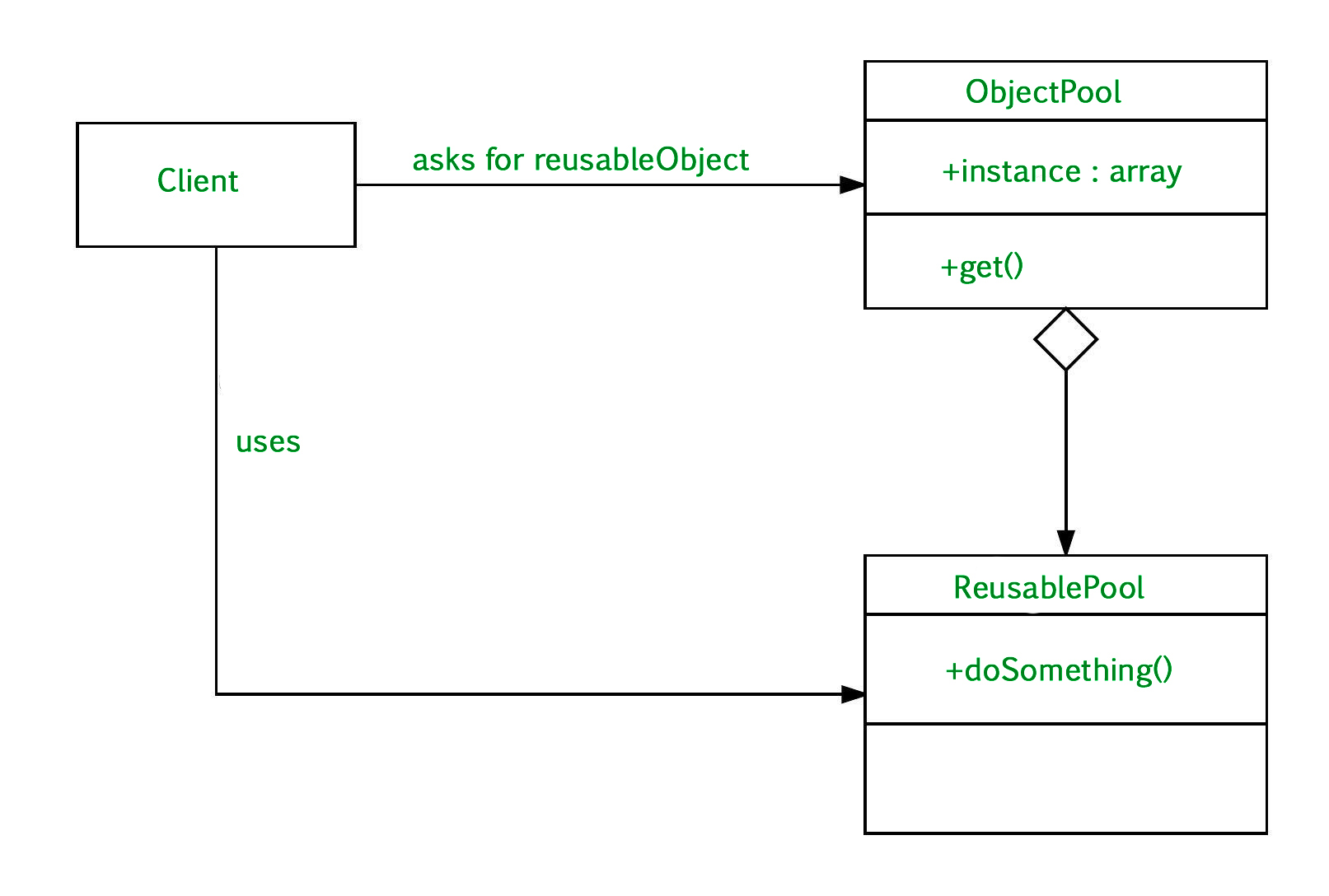- Intent: Used when an object is to be instantiated many times to the point that it causes significant overhead
Structure §

Object Pooling. Image taken from GeeksforGeeks
Applicability §
- You want to allocate and deallocate many object instances.
- When you want to have a limited number of said objects at a time (i.e., an extended version of a Singleton).
Consequences §
- It reduces the overhead for allocating the objects since they are simply fetched from the pool when needed and returned to the pool when done.
- The pooled object is obtained in a predictable time.
- In some cases, the memory overhead of storing pre-allocated resources may be quite high.
- Garbage Collectors may render them redundant or even an anti-pattern.
Implementation §
- In the case when the pool is empty we have three options
- Throw an error (useful when only a bounded amount of the resource may exist)
- The pool can simply create a new instance of that object.
- The pool may block other clients (in a Multiprogramming context) until a thread frees its object.
- The client must request an object from the pool via its factory method.
- When the object is returned to the pool, it must be reset to an original state in some way.
